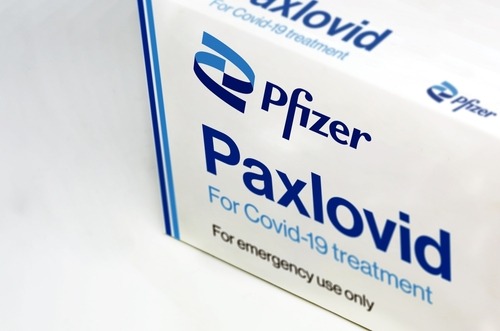
The United States authorized the first two pill-based treatments for COVID-19 last week, with the Food and Drug Administration (FDA) granting emergency use authorization to both Pfizer Inc.’s paxlovid and Merck & Co. Inc.’s molnupiravir.
Taking the honor of first approval was paxlovid.
“Today’s authorization introduces the first treatment for COVID-19 that is in the form of a pill that is taken orally — a major step forward in the fight against this global pandemic,” Dr. Patrizia Cavazzoni, director of the FDA’s Center for Drug Evaluation and Research, said in the wake of the approval. “This authorization provides a new tool to combat COVID-19 at a crucial time in the pandemic as new variants emerge and promises to make antiviral treatment more accessible to patients who are at high risk for progression to severe COVID-19.”
Within a day, molnupiravir followed suit, although its approval was much more scrutinized and debated than Pfizer’s offering. In November, it was recommended in a tight 13-10 vote by FDA advisors, after its efficacy was downgraded.
Neither paxlovid nor molnupiravir is meant for pre-exposure or post-exposure prevention of COVID-19 or for treating those in need of hospitalization due to severe or critical COVID-19 cases. Rather, both are meant for treatment of mild-to-moderate cases in those at least 12 years old, with positive results of SARS-CoV-2 viral testing and at risk of progression to severe cases, where alternative, authorized options are not accessible or clinically appropriate. They are available by prescription only and need to be given within five days of symptom onset.
Neither are substitutes for vaccination, which the FDA still recommends.
The EUAs mean the FDA deemed both pills to have benefits that outweigh any known and potential risks. In trials, paxlovid reduced risk of hospitalization or death by 88 percent among patients, while a revised assessment of molnupiravir put its effects to be just a 30 percent reduction of hospitalization or death risk among high-risk adults. Earlier analysis had suggested it was closer to 50 percent.
That said, paxlovid also came with its share of caveats. The treatment is administered as three tablets taken together, twice a day, for five days. Consisting of two drugs — nirmatrelvir and ritonavir — it can cause potentially significant drug interactions, including the building of resistance to HIV-1 drugs. Side effects can include impaired sense of taste, diarrhea, high blood pressure and muscle pains, as well as liver damage. As a result of the latter, it is not recommended for patients with severe kidney or liver impairment.




